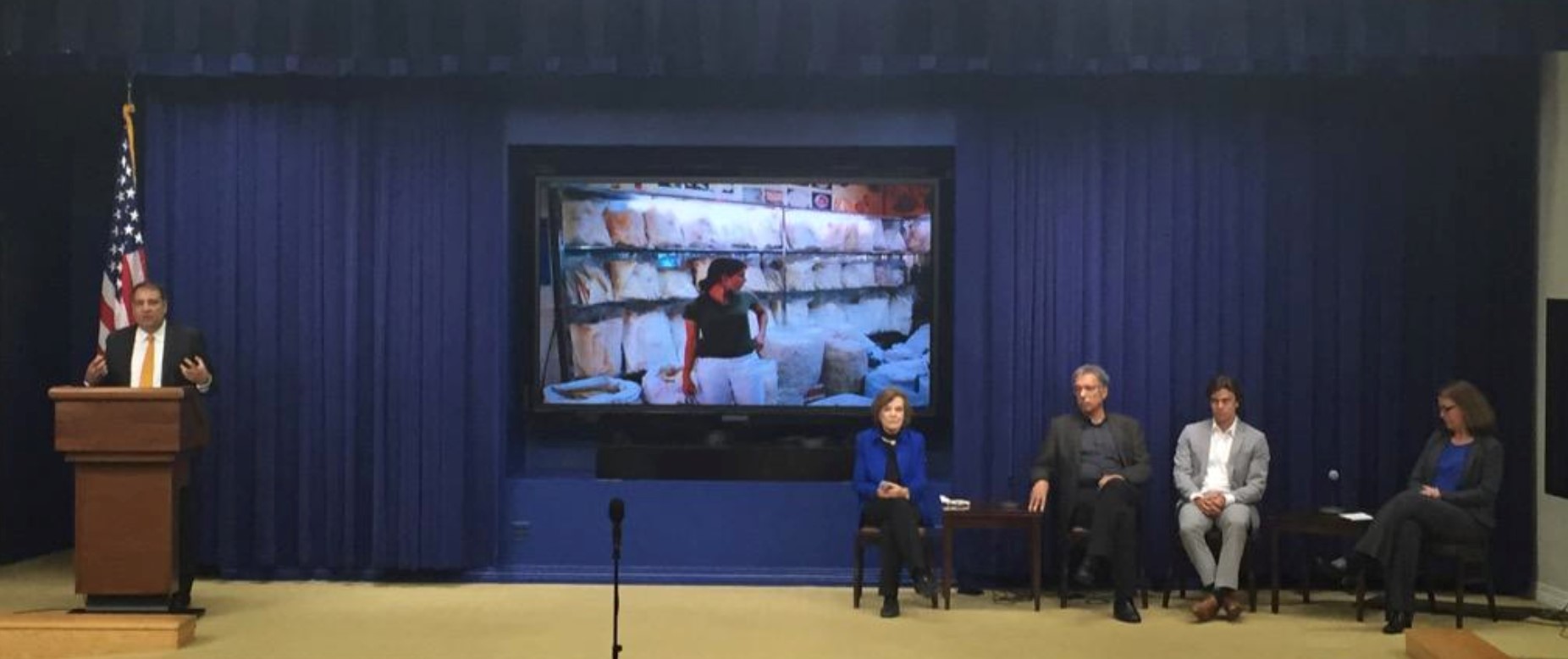Last week Dr. Daniel Pauly was invited to the White House to participate in a forum on citizen science and crowdsourcing.
The event, held on September 30, 2015, and hosted by the White House Office of Science and Technology Policy (OSTP), and the Domestic Policy Council, aimed to “celebrate the successes of citizen science and crowdsourcing,” and “raise awareness of the benefits these innovative approaches can deliver,” according to the White House website.
Dr. Pauly was there to discuss FishBase, the global database of fish he co-founded in the 1990s that is now the largest and most accessed online database for fish in the world. Each month it receives 50 million “hits” from over half a million unique viewers.
While experts initiated the database, it functions, in large part, from the input of thousands of citizen users.
“Much of the data sets in FishBase were initiated by communities from the bottom up, and then later, were picked up by academics,” said Dr. Pauly in an interview.
FishBase includes descriptions of over 33,000 species, and over 300,000 common names in almost 300 languages, 55,300 pictures, and references to 51,600 works in the scientific literature.
“FishBase has gathered a lot of data from its users—from photos, common names, forums and blogs. There is a huge openness of the database, and it is going to increase” said Dr. Pauly.
The forum, which was titled “Open Science and Innovation: Of the people, by the people, for the people,” highlighted the work of several other innovative citizen science endeavours.
For instance, 28,000 astronomy enthusiasts have made 1.4 million classifications of potential interstellar debris using NASA’s Wide-field Infrared Survey Explorer; and 5,500 active participants have helped record over 1.5 million observations related to plants and animals for the USA National Phenology Network, leading to contributions in 17 peer-reviewed publications.
“Citizen science and crowdsourcing projects can enhance scientific research and address societal needs, while drawing on previously underutilized resources,” said the Assistant to the President for Science and Technology, John P. Holdren, in a memorandum.
Drawing on his experience with FishBase, Dr. Pauly agrees. “Governments are realizing they cannot progress in many areas without citizen participation. The idea of citizen science is not only compatible with democracy and the environmental sciences; it is essential for them,” he said.
A complete video of the event can be found here.
Links to Facebook pages for FishBase, and its partner organization SeaLifeBase.


